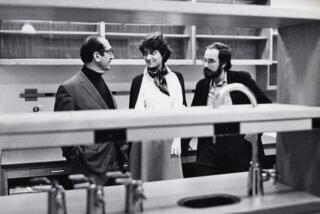Engendering a Debate Over Women’s Abilities
- Share via
Feb. 13 Opinion (“Gender Studies”) contained a great deal of hand-wringing about the past and current trends and abilities of women to be attracted by, and capable of doing, research in physical science. As a mentor of more than 90 undergraduates in Caltech’s summer undergraduate research fellowship program over the last 25 years for research work in chemistry, I can report on trends that I have encountered.
Initially, the program attracted many more men than women applicants, but was surely biased by the fact that initially the participants were drawn from Caltech students (at least two-thirds men). Later, when the program was advertised on the Internet, many more women applied. The gender balance over the last five years for my projects was rather even; 10 men and 11 women. For the coming summer, there are currently six women and two men among the applicants, only one of whom is a Caltech student.
The home institutions of those selected are nationwide. The quality of the work done by our women students has been equivalent to that of the men, and I can only say that, to me, the trends look like the gender gap, if there is one in chemistry, is disappearing rapidly and indeed may, in fact, reverse.
John D. Roberts
Caltech Professor of
Chemistry, Emeritus
Pasadena
*
Anyone who states that women are intellectually inferior to men clearly demonstrates his own intellectual inferiority.
Kenneth Mast
Tustin
*
I think, unlike Deborah Blum (Opinion, Feb. 13) that stereotypes of women’s logical abilities originates not from the Victorian period, but from SATs. Women score lower, on average, than male counterparts in mathematics and reasoning sections.
Though it is ludicrous to think a given woman is inherently lesser than a male, the math stereotype will rightfully remain until women’s SAT scores match or better men’s.
Alan Lovegreen
Laguna Niguel






